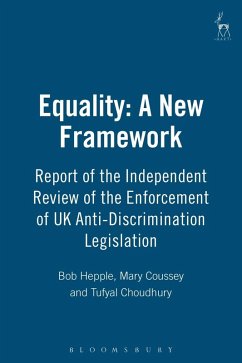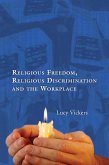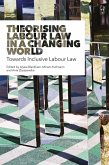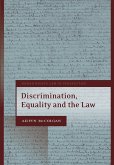The need for a legislative framework for ensuring equality of opportunity is not seriously questioned in the UK. However,despite the presence on the Statute book of various significant pieces legislation dating back to the mid 1970s, there remain deep-seated structural disadvantages which blight the lives of many women, Black and Asian people, and disabled persons. The Stephen Lawrence inquiry report highlighted the presence of institutionalised racism in the police. Similar barriers can also be found in other public services and in private sector organisations. There are also insistent demands for the extension of legislation to cover discrimination on other grounds such as religion, age and sexual orientation.
Discriminatory behaviour cannot be remedied by legislation alone, or simply by the actions of government, courts and tribunals and Commissions. Political and social leadership, customer and peer pressure, the development of good practices and campaigning all have a crucial part to play. Employers, trade unions, social organisations and clubs, service providers and individuals all have to take voluntary action to achieve the goals of the legislation.
One thing that is clear is that the present legislation is badly in need of modernisation. The present acts are outdated, piecemeal and inconsistent. They fall short of the standards set by EU law, international human rights law, and the Human Rights Act. In writing this report, the authors set out to develop an accessible and cost-effective legislative framework for ensuring equality of opportunity, and to propose other measures which will promote equal opportunity policies and spur compliance with those policies. In the course of preparing the report they have considered experience in other countries. They have heard from many individuals and organisations who have either experienced the effects of discrimination or attempted to counter it. They conducted a survey of employers in Britain, Northern Ireland and the USA, which shows that human resource managers are looking for a new more inclusive approach not only to prevent discrimination but also to provide positively for the fair participation of all groups. These views, together with those of an advisory group drawn from government, the Commissions, and tribunals, as well as a panel of academic and practising lawyers, form the backdrop to the recommendations contained in this report. Coming at a time when the Government is committed to introducing new equality legislation the report is bound to be highly influential. It will be essential reading for all those interested in human rights, discrimination and employment law, and human resources management.
TABLE OF CONTENTS
Introduction - Aims and Methodology
Ch. 1 - Why a new famework is needed
Ch. 2 - Harmonising legislation and institutions
Ch. 3 - Changing organisational policy and behaviour
Ch. 4 - Making procedures and remedies more effective
Appendices
The research was sponsored by the Joseph Rowntree Charitable Trust and the Nuffield Foundation, and was conducted under the auspices of the Centre for Public Law and the Judge Institute of Management Studies in the University of Cambridge.
Discriminatory behaviour cannot be remedied by legislation alone, or simply by the actions of government, courts and tribunals and Commissions. Political and social leadership, customer and peer pressure, the development of good practices and campaigning all have a crucial part to play. Employers, trade unions, social organisations and clubs, service providers and individuals all have to take voluntary action to achieve the goals of the legislation.
One thing that is clear is that the present legislation is badly in need of modernisation. The present acts are outdated, piecemeal and inconsistent. They fall short of the standards set by EU law, international human rights law, and the Human Rights Act. In writing this report, the authors set out to develop an accessible and cost-effective legislative framework for ensuring equality of opportunity, and to propose other measures which will promote equal opportunity policies and spur compliance with those policies. In the course of preparing the report they have considered experience in other countries. They have heard from many individuals and organisations who have either experienced the effects of discrimination or attempted to counter it. They conducted a survey of employers in Britain, Northern Ireland and the USA, which shows that human resource managers are looking for a new more inclusive approach not only to prevent discrimination but also to provide positively for the fair participation of all groups. These views, together with those of an advisory group drawn from government, the Commissions, and tribunals, as well as a panel of academic and practising lawyers, form the backdrop to the recommendations contained in this report. Coming at a time when the Government is committed to introducing new equality legislation the report is bound to be highly influential. It will be essential reading for all those interested in human rights, discrimination and employment law, and human resources management.
TABLE OF CONTENTS
Introduction - Aims and Methodology
Ch. 1 - Why a new famework is needed
Ch. 2 - Harmonising legislation and institutions
Ch. 3 - Changing organisational policy and behaviour
Ch. 4 - Making procedures and remedies more effective
Appendices
The research was sponsored by the Joseph Rowntree Charitable Trust and the Nuffield Foundation, and was conducted under the auspices of the Centre for Public Law and the Judge Institute of Management Studies in the University of Cambridge.









